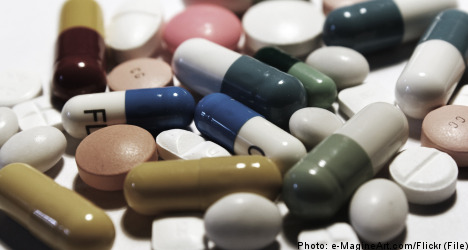All known victims of the substance 5-IT were men in their twenties, autopsied after the National Board of Forensic Medicine (Rättsmedicinalverket) suspected their deaths were caused by overdoses, wrote national newspaper Dagens Nyheter.
FHI warns of the dangers associated with online drugs.
“Often several different substances have been mixed into the powder or tablets that people buy, without their knowledge. And on chat forums different dosages are recommended. This makes the online drugs deadly,” said FHI’s investigator Anders Persson to the newspaper.
Despite the dangers, drugs sold over the Internet have exploded in popularity over the past couple of years, and authorities have difficulty keeping up with the constant stream of new ecstasy and amphetamine-type stimulant substances.
Production is mainly based in China, reports Dagens Nyheter, and the legal process to forbid each new substance as it appears takes several months.
According to last year’s investigative report from Swedish broadcaster TV4, based on statistics from the National Board of Forensic Medicine, 500 people in Sweden have been killed by Internet drugs in the past decade.
It’s unknown how many victims 5-IT may have claimed in total, or how many use the drug.
But according to the Swedish Poisons Information Centre (Giftinformationscentralen), eleven people have called them so far in 2012 complaining of unpleasant symptoms after taking the substance. Some common symptoms of drug overdose are high pulse, sweats, anxiety and confusion.
And the deaths of the 14 young men show the drug may be more widely spread than suspected.
“Previously we haven’t been able to make analyses because we lacked the resources to trace the substance. But now that there were so many, we could see that they had all used 5-IT,” said FHI’s Persson to Dagens Nyheter.
FHI is now demanding the ban of 5-IT, hoping that the process to make it illegal will be prioritized. A ban would mean that possession and purchase of the substance would be punishable by up to a year in prison.



 Please whitelist us to continue reading.
Please whitelist us to continue reading.
Member comments